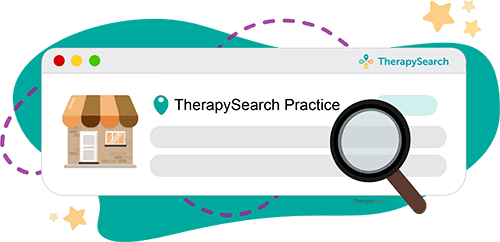Want to Solely Accept Cash Payments? Here’s How!
By Allison Puryear, LCSW, CEDS on November 3, 2021

I've seen an increase in more and more therapists who are desperate for resources to help them transition from accepting insurance to solely accepting cash payments. Well, take a deep breath, because I’m here to tell you that there are only two main things that you need to be aware of when you shift to private pay: marketing more effectively and getting a handle on your money mindset.
First, you have to market more effectively if you don't take insurance. Period. End of story. Typically, that means being more targeted in your niche. So if you haven’t already, get super clear on your niche. Then focus on doing a great job of talking to—not at—your ideal clients in your marketing efforts. Don't let that intimidate you. You're 100% capable of that.
The second big deal when transitioning to private pay is getting your money mindset right. If you're like me, you were told in grad school to never expect to make money from this career. As we learn more about private practice, we realize that's just not true. Then we imagine it for ourselves and the guilt comes marching in. We're supposed to be helpers, and apparently helpers aren't supposed to be wealthy. At least that's what I was taught. My obstetrician wasn't taught that, though. Nor was my dentist, nor my accountant, nor my attorney. My child's neurologist has never said, "I'm so sorry about that bill." Her tutor has never said, "you were late, so just pay a prorated amount." Yet therapists, the people most likely to be training clients on boundaries and self-care, pretend our own financial well-being isn't all that important. Adopting this money mindset can not only improve your finances, but also helps us to properly view the importance of our occupation and set an example for our clients.
Here’s a hot tip—a lot of people use getting off of a panel as a decoy problem. I promise, it isn’t hard! Just email provider relations at each insurance company and ask them how to get off the panel. In my experience, they usually ask for a two sentence request, signed and on letterhead. It's easier than most think. We even have scripts for how to communicate with clients that you're leaving their panel in the Abundance Party.
You can do this. I can say from personal experience that a staggeringly high percentage of clients stay—way more than you expect. I have also yet to work with any therapists who regretted leaving insurance panels. I'm neither pro or anti-insurance—I just want you to have what you want, and I want you to know that it's possible.
* The content of this post is intended to serve as general advice and information. It is not to be taken as legal advice and may not account for all rules and regulations in every jurisdiction. For legal advice, please contact an attorney.
About Allison Puryear, LCSW, CEDS
Get more content like this, delivered right to your inbox. Subscribe to our newsletter.
More Content You'll Enjoy

Converting Clients

What's New: Introducing Practice Profiles in TherapySearch!
